What is Indian connection to Iranian ship attacked off Sri Lanka by US Navy?
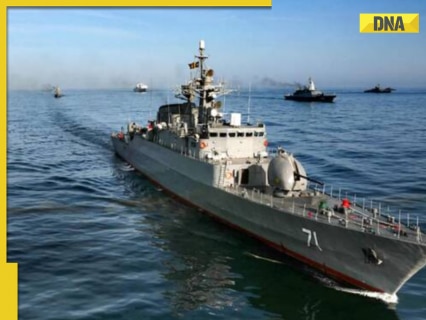
The recent US attack on Iran’s IRIS Dena warship in the Indian Ocean is a significant development, marking a major naval incident in the region since World War II. The warship was hit while returning from the Indian Fleet Review and Exercise MILAN in Vishakhapatnam, February 2026. The attack has resulted in 87 deaths, with survivors being treated in Sri Lanka, and two Iranian warships seeking refuge in Colombo.
Rule of law, dialogue, diplomacy: PM Modi calls for peace as US-Iran war rages high in West Asia
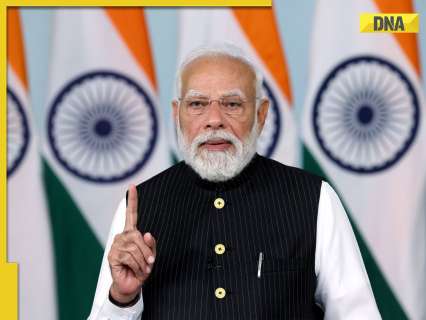
Prime Minister Narendra Modi has called for peace amidst the ongoing West Asia Conflict while addressing a joint press briefing along with Finnish President Alexander Stubb. He said that India and Finland both believe in the rule of law, dialogue and diplomacy.
India condoles Iran’s former Supreme Leader Ali Khamenei’s death, foreign secretary Vikram Misra signs condolence book
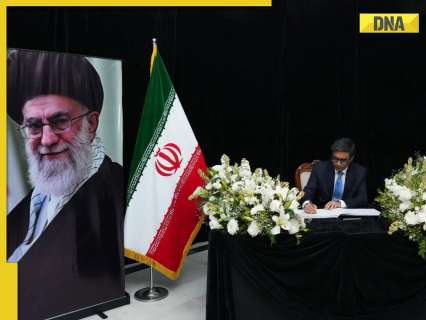
India’s Foreign Secretary, Vikram Misri, expressed condolences on the death of Ayatollah Khamenei, who was Iran’s supreme leader for almost 40 years, Thursday as he signed the condolence book at the Iran Embassy in New Delhi.
Jaishankar speaks with Iranian foreign minister Araghchi amid Middle East conflict
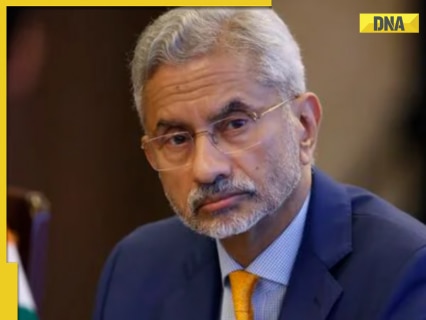
Earlier in the day, India offered condolences to Iran on the death of its longtime leader Ayatollah Ali Khamenei, who was killed in joint US-Israeli strikes on Saturday. Foreign Secretary Vikram Misri met the Iranian ambassador in New Delhi and signed a condolences book.
Why did CV Ananda Bose resign as Bengal Governor? BJP leader says ‘spent enough time at office’
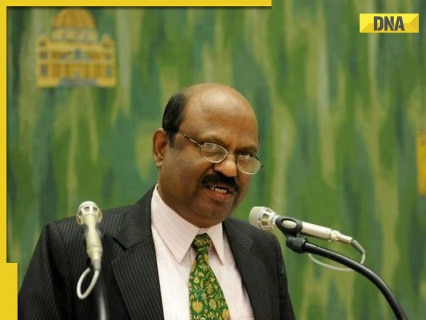
West Bengal Chief Minister Mamata Banerjee said in a post on X that she was “shocked” and “deeply concerned” by the news of Bose’s resignation. “The reasons behind his resignation are not known to me at this moment.”
Indian Navy clarifies responding to distress call from Iranian IRIS Dena warship, deployed aircraft

The Indian Navy on Thursday clarified that it conducted a search and rescue mission after it received a distress call from Iranian warship IRIS Dena, which was destroyed by a US torpedo killing over 80 sailors and injuring many others on board.
Who is Steve Toth, the outspoken state House hardliner who wiped out incumbent Dan Crenshaw?
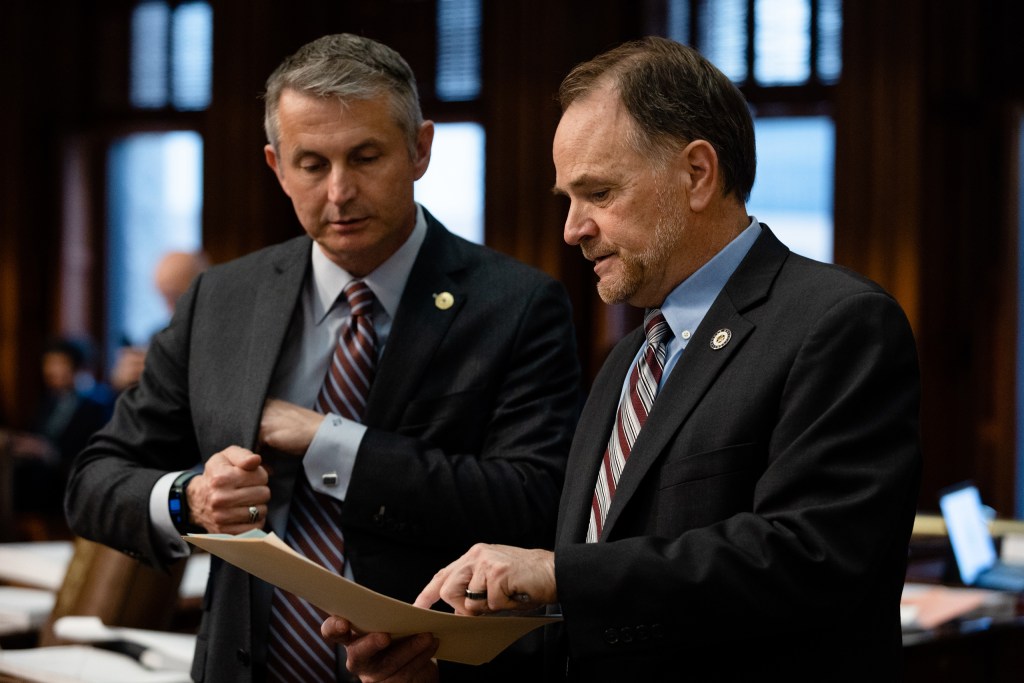
The Texas state representative is part of a band of conservatives known for antagonizing Republican leadership and working to push the state further right.
‘Under siege’: Inside the growing radical Islam threat critics say is hiding in plain sight in deep red Texas
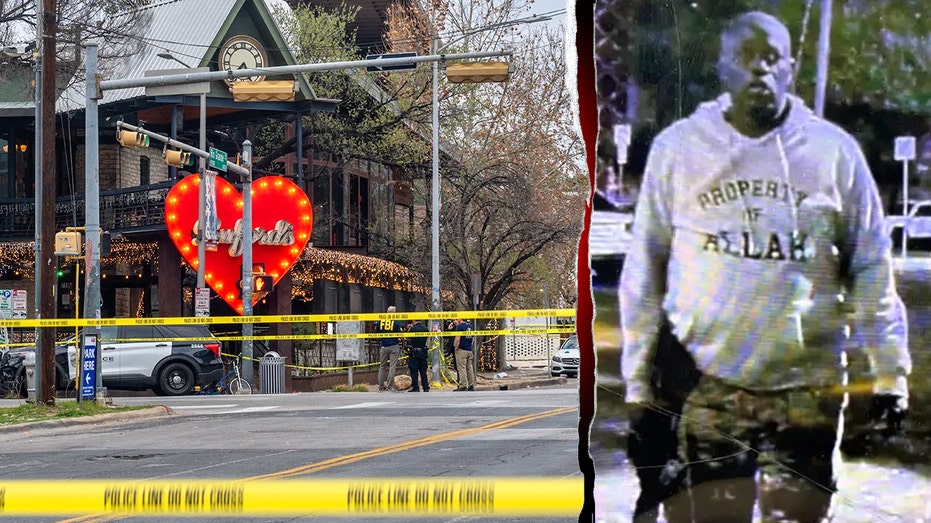
A shooting in Austin, Texas, over the weekend that left three innocent people dead and is being probed as a terror-related incident is putting a renewed focus on the potential spread of radical Islam in the United States, particularly in deep red Texas where concerns about Islamic fanaticism are hitting a fever pitch. The deceased shooting suspect, identified as Ndiaga Diagne, was a 53-year-old naturalized U.S. citizen who was born in Senegal and lived in Pflugerville, Texas, after entering the country in 2000. Diagne was wearing a shirt that said “Property of Allah” and another shirt underneath that depicted the Iranian flag. The FBI said the shooting, which came shortly after the U.S. and Israel’s attack on Iran, was “potentially an act of terrorism.” The likelihood that Diagne was motivated by religious ideology, bolstered by a CBS News report on his social media presence, has prompted widespread alarm about the rise of radical Islam in Texas along with the heightened scrutiny of possible Iranian sleeper cells activating in the United States in response to recent U.S. military strikes on Iran. MAGA HARDLINER PUSHES BAN ON IMMIGRATION FROM ISLAMIC COUNTRIES, US ADVERSARIES IN WAKE OF TEXAS SHOOTING “Texas is currently under siege by Islamists who want to reshape our state and America as a whole,” Republican Congressman Chip Roy, running for attorney general in the state, told Fox News Digital. “The tragic shooting over the weekend in my home of Austin, Texas, is another example of why we need to pause immigration until the system is fixed. We need to stop bringing people into our country who want to kill us.” Social media have been littered with examples in recent days of accounts voicing concern about possible radicalization in mosques throughout Texas. “330 mosques in Texas… and an average of 2 new ones per month,” conservative influencer account End Wokeness posted on X. “These mosques are popping up all over the place,” a former Austin police officer told Fox News Digital. “I have no doubt in my mind that there’s radicalization going on in these mosques. There has to be.” While it is unclear what mosque Diagne attended in Texas, if any, the Middle East Media Research Institute (MEMRI) has released dozens of sermons and lectures from Texas and has published a compilation video of extremist imams in Texas from 2018-2025. The compilation video shows imams from cities across Texas praising Khamenei, leading “down with Israel” chants, saying “Muslims will kill the Jews,” promoting “jihad,” and highlighting what MEMRI describes as examples of radical ideology. TEXAS DEMOCRATIC SENATE CANDIDATES SIDESTEP ISLAMIC TERRORISM CONCERNS FOLLOWING DEADLY AUSTIN ATTACK “There is a great deal of troubling activity from many influence groups, including the Muslim Brotherhood, pro-Hamas organizations, and Shi’ite organizations, who express open support for Iran and have pledged allegiance to Khamenei,” MEMRI Executive Director Steven Stalinsky told Fox News Digital. Last year, MEMRI highlighted the Islamic Center of Pflugerville, led by Mufti Umer Farooq Saleem, who hosted a children’s story night where he told attendees that Israel “is the illegal state of the Jews.” Fox News Digital reached out to the Islamic Center of Pflugerville for comment. Shamsud-Din Jabbar, the Muslim man who rammed a white truck into a crowd full of New Year’s revelers in New Orleans last year and fired shots at police officers killing 14 and injuring more than 30, was born and raised in Beaumont, Texas. Jabbar lived in Houston before committing the crime, inside a mobile home just about a seven-minute walk from the Masjid Bilal Mosque and Darul Arqam Islamic school. Shortly after the attack, that mosque sent congregants a message to direct FBI inquiries to a special-interest group, the Council on American-Islamic Relations (CAIR), and avoid speaking to the media. Fox News Digital reached out to Masjid Bilal for comment. Roughly 30 miles south of Masjid Bilal Mosque, the Islamic Education Center of Houston has drawn the attention of MEMRI, which posted a video showing children pledging allegiance to Khamenei in 2022, along with a 2019 video of young boys pledging allegiance to the now-deceased leader. Fox News Digital reached out to the Islamic Education Center of Houston for comment. Similar allegiance to the fundamentalist Iranian regime and hardline Shiite ideologues can be found all across the country and a Fox News Digital investigation published earlier this week analyzed hours of sermons and scores and found that precepts shaping Tehran’s worldview, from its clerics to the Islamic Revolutionary Guard Corps, are also being preached on American soil by proxies for Iran’s propaganda. “What we’re seeing is years of deliberate investment by the Islamic Republic inside the United States,” Andrew Ghalili, policy director at the National Union for Democracy in Iran, told Fox News Digital. TEXAS GOV GREG ABBOTT CALLS FOR CAIR TO BE STRIPPED OF NON-PROFIT STATUS “This is happening on American soil, and it’s just another way in which the regime poses a direct threat to the United States, this time not with missiles but through infiltration,” he said. Texas has been in the news in recent years as some residents push back on a proposed 400-acre community known as “EPIC City” that critics say is marketing itself as a Muslims-only community. Texas Republican Attorney General Ken Paxton recently sued the developers of that project, alleging the defendants raised tens of millions of dollars while violating securities laws, misleading investors about the project’s nature and location, and misrepresenting how funds would be used. Concerns about potential Iran-linked sleeper cells are rising as the Department of Homeland Security remains unfunded and Tehran and its proxies threaten retaliation over U.S.-Israeli strikes that American officials say killed nearly 50 top Iranian leaders. Texas Gov. Greg Abbott told FOX Business that sleeper cell threats need to be taken seriously after the Austin attack. “There are other details that will be coming out about the shooter and his connections to terrorism that will make clear [that] this was a lone wolf activity where this shooter intended to wreak havoc here in Texas, here in the United States, because of
DOJ signals it’s still digging into Biden autopen use despite reports probe fizzled
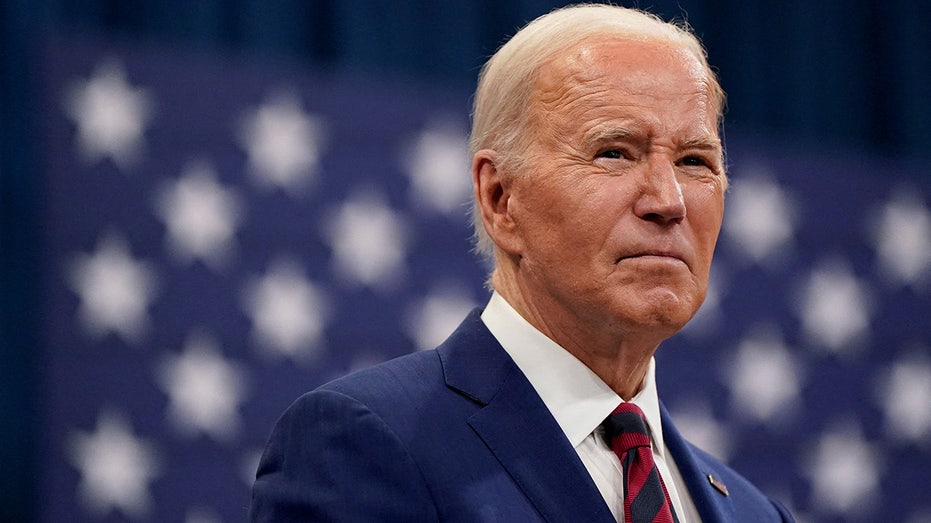
The Department of Justice indicated Thursday it is still investigating the legality of former President Joe Biden’s use of an autopen despite reports that the probe has been shelved because prosecutors have been unable to identify any criminal charges to bring. Multiple sources told Fox News Digital that U.S. Attorney Jeanine Pirro’s office was still looking into the Biden White House’s autopen use after the New York Times reported that the inquiry was recently tabled. Pirro responded to the report in an X post on Thursday, saying the DOJ “cannot comment on ongoing investigations,” signaling the investigation remained open. TRUMP TO VOID ALL DOCUMENTS ALLEGEDLY SIGNED BY BIDEN VIA AUTOPEN, THREATENS PERJURY CHARGE The New York Times reported Wednesday that the “inquiry was quietly shelved” because the DOJ failed “to build a criminal case against Mr. Biden and his aides.” Jonathan Turley, George Washington University law professor and Fox News contributor, previously said legal challenges to Biden’s autopen use would likely be unsuccessful. “Many are suggesting that the Biden pardons may now be challenged in light of the disclosures of Biden’s use of an autopen,” Turley wrote on social media in 2025. “The chances of such challenges succeeding are vanishingly low. Presidents are allowed to use the autopen and courts will not presume a dead-hand conspiracy.” While other presidents have used autopens, including Trump — who has said he used it on “unimportant” documents — Biden’s became a flashpoint as scrutiny of his mental acuity grew during his tenure. BIDEN’S ‘AUTOPEN SIGNATURE’ APPEARS ON MOST OFFICIAL DOCS, RAISING CONCERNS OVER WHO CONTROLLED THE WH: REPORT The Republican-led House Oversight Committee investigated the matter, interviewing several former Biden staffers. The committee alleged in a report that Biden’s use of the autopen amounted to a scandal and recommended the DOJ investigate further. “As President Biden declined, his staff abused the autopen and a lax chain-of-command policy to effect executive actions that lack any documentation of whether they were in fact authorized,” the report read. Trump has been eager to see accountability over the autopen, claiming on social media that any staff who used the autopen on behalf of Biden did so “illegally” and threatening the former president with perjury charges. Biden has forcefully denied the allegations, saying in a statement last year he was in charge of decision-making. “Let me be clear: I made the decisions during my presidency,” Biden said. “I made the decisions about the pardons, executive orders, legislation, and proclamations. Any suggestion that I didn’t is ridiculous and false.” The committee had homed in on Biden’s pardons, including five controversial pardons for his family members in the final days of his presidency, saying there was a lack of “contemporaneous documentation” to corroborate that Biden directly ordered the pardons. The committee asked the DOJ to investigate “all of former President Biden’s executive actions, particularly clemency actions, to assess whether legal action must be taken to void any action that the former president did not, in fact, take himself.” TRUMP RENEWS ATTACKS ON BIDEN AUTOPEN PARDONS, CLAIMS HE ‘NEVER GAVE THE ORDERS’ Asked for comment, the White House deferred to the DOJ. DOJ headquarters declined to comment. Fox News’ David Spunt and Jake Gibson contributed to this report.
Paxton vows he’s ‘staying in this race’ even if Trump backs Cornyn in Texas GOP clash
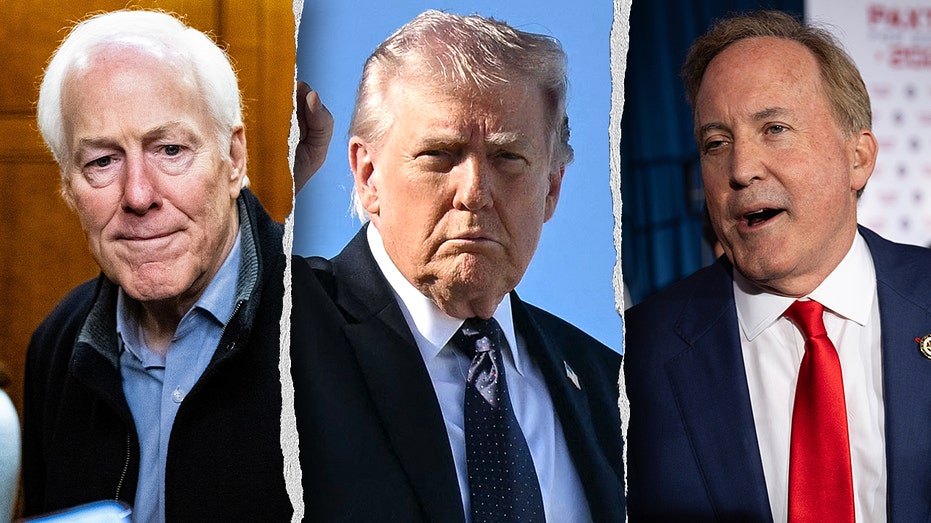
Texas Attorney General Ken Paxton is making it clear: he’s staying in the race for the Republican Senate nomination even if President Donald Trump endorses Paxton’s rival, longtime Sen. John Cornyn. “I’m staying in this race,” Paxton said in an interview Wednesday evening. “I owe it to the people of Texas.” Trump says he’ll soon take sides in the costly and combustible GOP primary showdown between Cornyn and Paxton. “I will be making my Endorsement soon,” the president wrote in a social media post hours after Cornyn and Paxton advanced to a May 26 runoff election. TRUMP TEASES ENDORSEMENT COMING SOON IN CRUCIAL GOP CLASH The two heated rivals topped a crowded field of contenders in Tuesday’s primary, but since no one cleared the 50% threshold, the nomination race heads into overtime. Trump added that he “will be asking the candidate that I don’t Endorse to immediately DROP OUT OF THE RACE!” A Republican operative in Trump’s political orbit told Fox News Digital it’s expected Cornyn will get the president’s endorsement. However, the president has been known to change his mind on candidates or even reverse endorsements. A second source in Trump’s political orbit told Fox News that while there’s still jockeying to influence the president’s decision, given Cornyn’s better-than-expected performance in the primary, Trump is expected to back the senator and prevent a messy and expensive runoff. CONTENTIOUS REPUBLICAN SENATE PRIMARY IN TEXAS HEADED INTO OVERTIME Asked if he would end his Senate bid if Trump backed Cornyn, Paxton, a MAGA firebrand and longtime Trump supporter and ally, said no in an interview with Real America’s Voice. “I’ve spent a year of my life campaigning against John Cornyn because John has not represented the people of Texas well,” Paxton argued. “He’s been against Trump in both of his elections, said he shouldn’t run last time. … The people of Texas, at least the Republicans, would like something different.” And a source in Paxton’s political orbit emphasized to Fox News Digital that the Texas attorney general isn’t getting out of the race. Asked about Paxton’s comments, Trump said Thursday morning in a Politico interview, “Well, that’s bad for him to say.” “That is bad for him. So maybe, maybe that leads me to go the other direction,” the president added. Cornyn or Paxton will face off in the general election against rising Democratic Party star state Rep. James Talarico, who topped progressive firebrand Rep. Jasmine Crockett, a vocal Trump critic, in the Democrats’ primary. Talarico is trying to become the first Democrat in nearly four decades to win a Senate election in right-leaning Texas. ‘OPEN BORDERS, TRUMP-HATING RADICAL’—REPUBLICANS QUICKLY POUNCE ON TALARICO The 2026 Senate showdown in Texas is one of a handful across the country that could determine if Republicans hold their majority in the chamber in the midterm elections. The GOP currently controls the chamber, 53–47. The Cornyn campaign and aligned super PACs spent nearly $100 million to run ads attacking Paxton and Republican Rep. Wesley Hunt — who came in third — with the senator charging in the closing weeks of the primary campaign that Democrats would flip the seat in the general election if Paxton was the GOP’s nominee. Cornyn, his allies and the National Republican Senatorial Committee (NRSC), the campaign arm of the Senate GOP, repeatedly pointed to the slew of scandals and legal problems that have battered Paxton over the past decade, as well as his ongoing messy divorce. “Over the next 12 weeks, Texas Republican primary voters will hear more about my record of delivering conservative victories in the United States Senate, and learn more about Ken’s indefensible personal behavior and failures in office,” Cornyn told reporters on Tuesday night. “Just like the primary, we have a plan to win the runoff, and we are in the process of executing it,” Cornyn said. “Judgment day is coming for Ken Paxton.” Paxton, a MAGA firebrand and longtime Trump supporter and ally who grabbed significant national attention by filing lawsuits against the Obama and Biden administrations, told supporters on primary night, “As we head into this runoff, we’re going to make the choice even clearer. While John Cornyn was cutting deals on gun control and amnesty, I was suing corrupt Joe Biden over 107 times.” And he charged, “John Cornyn spent around $100 million trying to buy this seat. We’ve spent around $5 million.” ROUND TWO OF CORNYN VS. PAXTON GETS UNDER WAY Trump on Wednesday urged, “for the good of the Party, and our Country, itself, be allowed to go on any longer. IT MUST STOP NOW!” And pointing to Talarico, the president argued, “We have an easy to beat, Radical Left Opponent, and we have to TOTALLY FOCUS on putting him away, quickly and decisively.” “Both John and Ken ran great races, but not good enough. Now, this one, must be PERFECT!” Trump warned. Trump, whose clout over the GOP remains immense, stayed neutral in the Republican primary race. All three candidates, who sought the president’s endorsement, were in attendance Friday as Trump held an event in Corpus Christi, Texas. “They’re in a little race together,” Trump said of Cornyn and Paxton. “You know that, right? A little bit of a race. It’s going to be an interesting one, right? They’re both great people, too.” Meanwhile, on Capitol Hill, the lobbying campaign to clinch the endorsement for Cornyn hasn’t stopped, and if anything, is intensifying in the hours since primary night. Senate Majority Leader John Thune, R-S.D., told reporters that Cornyn had “a great night” against Paxton. The top Senate Republican has spent the last several months bending Trump’s ear at every opportunity to jump into the race and back the longtime incumbent. “He’s positioned to win the runoff, and if the president endorses early, it saves everybody a lot of money, and a lot of, you know, just 10 weeks of another spirited campaign on our side that keeps us from spending time focusing on the Democrats,” Thune said. Thune spoke

